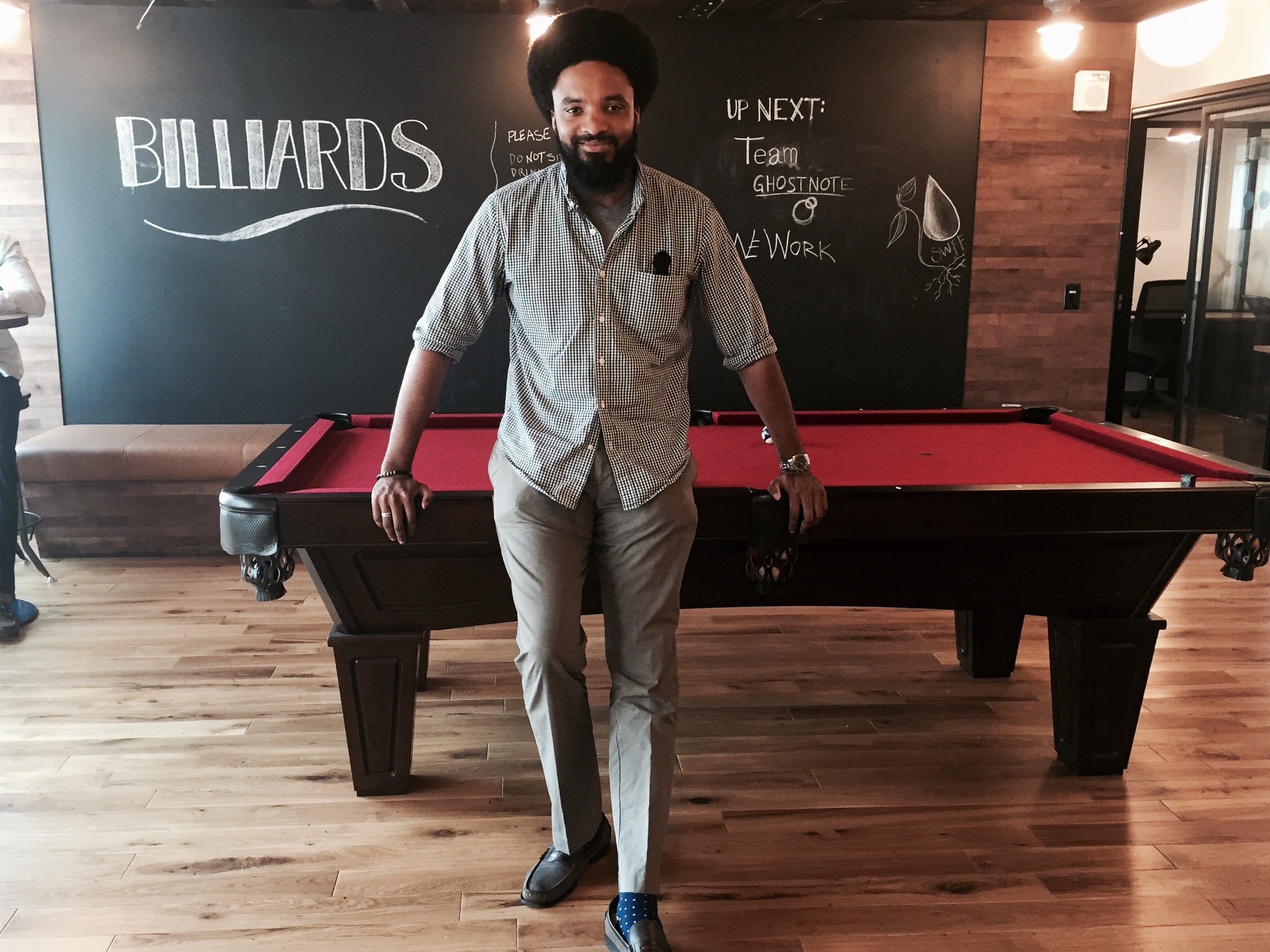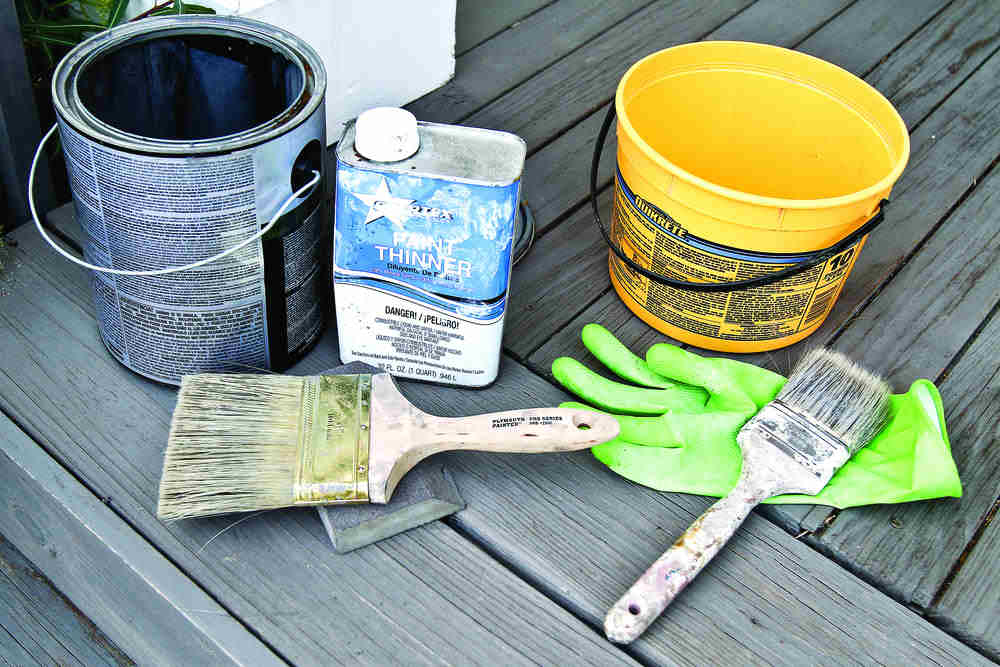 We are excited to introduce the I Love My Job campaign! Each month, we will feature a different professional who has found their niche. The Niche Movement's mission is to help young professionals discover what they're passionate about and to inspire them to find a career they love.
We are excited to introduce the I Love My Job campaign! Each month, we will feature a different professional who has found their niche. The Niche Movement's mission is to help young professionals discover what they're passionate about and to inspire them to find a career they love.
Meet Brandon McCollough, founder and CEO of Generation Next in Washington, DC. Brandon, a New Jersey native, left his position at the National Society of Black Engineers in October, 2014 to launch his own company. Last month we had the opportunity to sit down with Brandon and pick his brain about his change in career and how he found his niche.
Why Did You Become an Entrepreneur?
"I actually was just thinking about this a few weeks ago, so it’s funny you ask. Throughout my life, I’ve always had the ambition to do something on my own. It wasn’t necessarily that I wanted to become an entrepreneur; I just wanted to start my own thing. I was a little bit of a tech geek when I was younger. When I was in middle school, I remember a friend and I decided that we wanted to build our own video game. We drew out all of the characters and started to learn what it meant to build a video game. That’s what kind of drew me into the tech space. Then in college, when my friends and I would have events, I would be in charge of the operational aspect, bringing people together and building things out. Professionally, though, everything I’ve done has been in the space of community development. The job that I left was at the Society of Black Engineers and I kind of see my work here as a continuation of that. They were both community oriented in terms of creating a pipeline for talent and helping people find their passions."
What is Generation Next?
“We are a social enterprise that helps young Millennials in the DC area connect to job opportunities, advance their careers or launch their own businesses. That’s what we’re into, trying to help people find out what they’re great at and what they love. I would say our real birthday was last year in November. That is when I started doing this 9 to 5. Before that, we started with just a few folks who like to connect people and have events in their spare time. Now we are in the position to have two people full time and we’re looking to add some more team members."
Who is Your Demographic?
"Definitely Millennials, that’s our sweet spot, that’s the age range we’re targeting. We help folks that have two years of experience onto five to seven years of experience, so about 20-years old to 35-years-old is our sweet spot. They’re a whole range of folks in terms of backgrounds and industries. You know, we get a lot of people in DC from the Federal background that either want to transition into the private sector jobs or folks in the tech space. That’s kind of our niche within our niche because DC is a growing hub for technology."
What Has Been Your Biggest Success?
"Yeah, I’d have to say the Millennial Job Summit. It was our first big Generation Next Sponsored event. We were able to connect about 400 registrants to startups, businesses and Millennials who are looking for a job. We also had an entrepreneurial panel to give registrants information about starting their own thing. We got a lot of good feedback. Even though it was on a smaller scale, the registrants were able to make a lot of good connections whether it was finding co-founders for their own organizations or taking on new employees. It was great to play a role in the economic development of young folks, that’s what we’re all about, that’s the space where we’re trying to make a big impact."
What Advice Do You Have For Young Professionals?
"I like that this generation has come to embrace mistakes and failures and can learn from them. You can’t have people who are scared to try something different or try something new because that’s when the best things are created. Have the tenacity to put your ideas out there. Especially for the DC area, there are so many resources and Meetups or groups, you should always try to meet new people and make new connections. It’s really important in a “Who You Know” kind of city like DC. Don’t be afraid to go outside of your own expertise. I didn’t study computer software when I was in school, but I go to hack nights and code for progress events where they teach you how to create your own website from scratch. There are folks in there who’ve never written a line of code in their life, but they’re building websites better than people I know who when to college for it. Do something outside of the box because you might find something that you’re good at that you would’ve never known. Definitely get out there and meet new folks. Every week I try to set up coffee or lunch with three people that I’ve met. A lot of times you’ll go out to an event in DC and have this whole collection of cards but most people don’t follow up after that. If you don’t tap into that, what’s the purpose? By following up, you build a good personal brand and as long as you’re selling something dope, something that people understand, they’ll be your brand ambassadors."
What Are Your Favorite Places in DC?
"Aw man, well I’m a foodie so… I like a lot of places. I like the whole 14th street district because they have everything in there you could want within walking distance. There’s this place on 14th and T street called Tico that I really like and my favorite bar is down there too; it’s called Pearl Dive Oyster Palace. My favorite restaurant is Fogo de Chao which is a Brazilian steak house. They bring by every cut from filet mignon to sirloin and they just keep chopping, it’s awesome."
If you or someone you know is working at a job they love and would like to be featured on our blog, reach out to us at kevin@thenichemovement.com.











